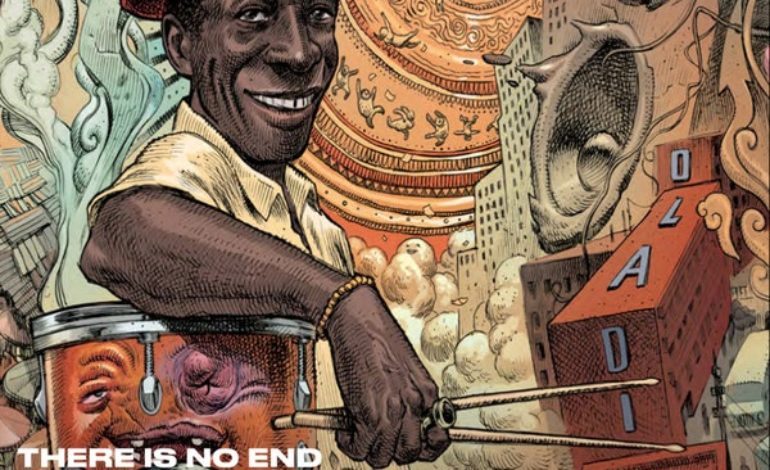

The creator of Afrobeat vibes
Tony Allen, a Nigerian drummer, composer and songwriter, released his posthumous album There Is No End on April 30, 2021. As a legendary co-founder of the Afrobeat genre, the album captures Allen’s hard work in his last days as a musician. The release date of There Is No End marked the one-year anniversary of his passing and serves as an appreciable homage to his contribution to the music industry.
Solely composed by Allen, the 14-track album highlights his brilliance and the talent of upcoming artists forging their way in the Afrobeat genre. According to Pitchfork, on this album, Allen directs up-and-comers and veterans as they find their place in his steps and meets them where they are transferring not only his musical knowledge but his ability to embody coolness while deep within a performance.
The second track, “Stumbling Down,” featuring the rising African singer/rapper known as Sampa the Great, accentuates Allen’s Afrobeats and brings out Sampa’s eccentric skills to the foreground. With a head-bopping flow, “Stumbling Down” is true to the Afrobeat genre while also incorporating a trendy sound. Sampa’s lyrics in the hook instantly grabs attention enough to get lost in the motion and delve into her music. Allen started the album off with a bang as he showcased a loud and memorable beat that will make any listener get on their feet.
Smoothly transitioning into the next song, “Crushed Grapes,” the flow makes a significant turn to be much slower and more rap-focused. The collaborating rapper in this track, Lord Jah-Monte Ogbon from Charlotte, North Carolina, presents the hard-edged style of his hometown beside Allen’s slow and euphoric groove. Detroit-based rapper Danny Brown adds to the hard-edged and abrasive style of his hometown in “Deer In Headlights.” Blending Brown’s aggression and Allen’s easygoing and leisure groove creates an enthralling sound that almost seems effortless. With an unforgettable hook and a solid meshing point of the rapper’s melody and Allen’s drumming, the song overall is a smooth curveball.
One of the most important aspects of There Is No End is Allen’s intention of highlighting the issue of diminishing Black voices and the struggles of the community as a whole. Both the composition and lyrics of “Coonta Kinte” and “Hurt Your Soul” reflect upon the rage and frustration of people of color. A rapper in Brown’s Bruiser Brigade collective known as ZelooperZ brings more of that Detroit aggression in “Coonta Kinte.” He conveys his anxiety about America’s need to undermine Black lives/voices in the lyrics: “Why you want me in the ground, cover my skin in soil. I’m just a Black man in a world full of colors.” Kicking off “Hurt Your Soul” with “My skin blacker than most,” Allen and Nate Bone touch on the controversial topic of police brutality. With Bone’s outward language for his distaste for racism and Allen’s gunshot-like drum snares, this song can be considered a very powerful piece.
Aside from the strong, hard-hitting songs of the album, there is also a hint of soft tone sounds sprinkled within. Channeling a delicately confident delivery similar to FKA Twigs, Lava La Rue brings something different to the overall feel of the album in “One Inna Million.” Although the song was created with good intentions, the placement of it in the sequence of the album is disconnected. It would have best served as an interlude or as one of the last tracks.
There Is No End is an attestation to Allen’s iconic contribution to the world of music, especially the genre of Afrobeats. The album not only allowed him to showcase his effortless talent as a drummer and composer in his last days but also the chance to pass the baton to artists who will soon contribute to the evolution of music; he intentionally chose more unknown artists to up the revenue of new musicians. There Is No End is a rejoiceful work of art in celebrating Allen’s legacy.
